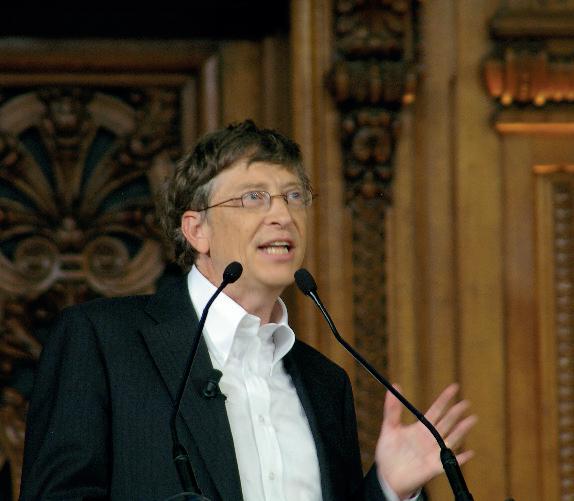
2 minute read
Bill Gates: Tech tycoon turned pre-eminent philanthropist
by Exeposé
Ewan Edwards, Tech Editor, unpicks Amol Rajan's interview with Bill Gates
WHO comes to mind when you think of the world’s richest man? It may now be Elon Musk or Jeff Bezos, but for nearly two decades Bill Gates owned this title. He has since turned away from Microsoft, leaving behind his day-to-day running of the company in 2008 to focus on philanthropy — or as some would rather you believe, focusing on his plot to implant microchips into our bodies and run the world from the Virgin Islands. Gates' interview with Amol Rajan covered a vast array of topics: the troubles of wealth, how positions of power can be abused, climate change, and all this ending with the burning question: where can you get the best cheeseburger in the world? For that question, Gates was unequivocal in his answer directing viewers to the famous golden arches. The interview was casual in tone, look and feel — both Rajan and Gates were sat alongside each other on a couch not sitting opposite each other across a table as is so often done. Whilst this was an obvious attempt to disarm Gates, it felt a little awkward, perhaps even too casual. This awkwardness, however, could also be put down to the few tough questions he faced regarding his own treatment of workers, specifically female employees, adultery during his marriage and relationship with Jeffrey Epstein. He sought to completely sideline questions about adultery telling Rajan that they were issues for the past and that they had been dealt with behind closed doors. A man in his late 60s I'm sure has little appetite to air his dirty laundry in public. On Epstein, conspiracy theorists will be left unsatisfied as Gates did not admit, surprisingly, to any great friendship with the disgraced billionaire only that they had chatted over din ner to discuss financing of philanthropic work. Whilst there was lit tle revelatory that came from the interview, it was a compelling watch nonetheless.
Advertisement
On current technology scares, especially those in social media spaces such as misinformation which continue to plague pub lic online spaces, Gates said he could not have foreseen such circumstances. He did not feel he was to blame for software developments that have led to online abuse, misinformation or hate speech. Alhough some may be sympathetic to Gates, the current abhorrent state of social media is an indirect effect of his software developments, and it may be felt that Gates should be part of the solu- tion to finding a better social media reality.
One of those who believes they are aiding the creation of a better, kinder digital world is Elon Musk who has been a recurring character in tech news of late. When questioned on whether Gates’ rule of Microsoft echoed that of a tyrant, and in turn Musk, he shied away from the question, instead pointing to their common belief in hard work. Whether it is an intentional move or not, Gates has mastered the role of having an unassuming public face. Without question he was a cutthroat CEO of Microsoft; believing that his employees were honoured to be working for such a company, he expected nothing short of the best.
Despite the obvious glossy and glamourised headlines of this interview surrounding much of Gates' life, the discussion surrounding his philanthropic work provides a telling









